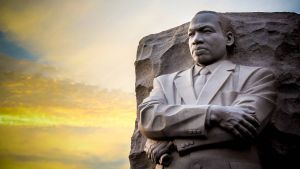Gen Z, which includes people ages 18–24, will make up more than 1 billion of the global workforce in the next decade, according to a new Intel report. They are entering the workforce during a time when collective knowledge about inequalities and injustices based on class, race, gender, ability and sexuality are at their peak. According to Intel’s research, they’re also most likely to consider lack of diversity and inclusion practices by their employer a deal-breaker.
The survey was conducted in June 2020 in the UK and included people from all age groups. Of the subjects, 59% were employed full time, 21% parttime, 8% self-employed or freelance, and 8% unemployed but looking for work, and 4% in education or training. The survey found diversity and inclusion was generally supported among age groups, but Gen Z’s responses reflected an even stronger emphasis. More than half (56%) of Gen Z respondents said they’d be hesitant to take a job from an organization that claimed it was diverse but did not have any diversity in leadership roles. The same percentage of millennials (aged 25–35) agreed.
Researchers also found that in choosing between job offers, a company’s stance on diversity and inclusivity is almost as important as pay. Thirty-four percent of Gen Z respondents said they’d choose the job that was more diverse and inclusive, and 36% considered pay the deciding factor. Thirty-three percent of Gen Z respondents said they were concerned with finding a job that aligned with their ethics, compared with 36% who prioritized financial security. Notable 41% of Gen Z respondents also cited career enjoyment and fulfillment as an important factor that concerned them.
The report further indicated that Gen Z is “highly educated, digitally native and change minded.” “Gen Z takes decisive action. Digitally native and connected, we’ve seen it rally against climate change and take to the streets to protest inequality. Now it is bringing that sense of activism into the workplace.”
Related: Survey Says HIV/AIDS Stigma and Lack of Knowledge Is Common Among Millennials and Gen Z
When all age groups were asked to define inclusivity, 72% cited “equal opportunities for all,” 48% and “fair representation of diverse people” and 42% said that culture, belonging, and “anti-discrimination codes and conducts” were aspects of inclusivity. “Even at a formative stage in their careers, young people’s experiences of discrimination are affecting how they think about their professional futures: both creating concerns and setting expectations,” the study states.
Older and younger professionals also viewed the economy differently. Only 22% of Gen Z respondents considered a global economic downturn the most worrying cause for concern, compared to 44% of 55–64-year-old workers and 41% of 45–54-year-old workers.
Gen Z’s responses also reflected that they are the most likely to report having experienced bias as a result of their gender, ethnic background, sexual orientation and disability. A majority (39%) of Gen Z respondents said they had encountered gender bias, compared to 29% of millennials and 11% of those aged 55–64. Twenty-one percent said they’d experienced bias based on sexual orientation, 26% on ethnic background and even 40% on age.
In the U.S., Gen Z and millennials are the most diverse age group in history, according to a CNN Money report. Fifty-six percent of millennials are white, and that percentage decreases for younger populations. Today’s babies are 50% white, meaning we are moving toward a future where white is no longer the majority in the U.S. Hispanic/Latinx people are the next populous, with more than a quarter (26%) of babies born in the past year fitting into this demographic group. Fourteen percent were Black, 5% were Asian, 5% were mixed-race and 1% were American Indian or Native Hawaiian.
As younger generations enter the workforce, their needs and demands are poised to drive change.
“Gen Z takes decisive action,” the report says. “Digitally native and connected, we’ve seen it rally against climate change and take to the streets to protest inequality. Now it is bringing that sense of activism into the workplace.”


















